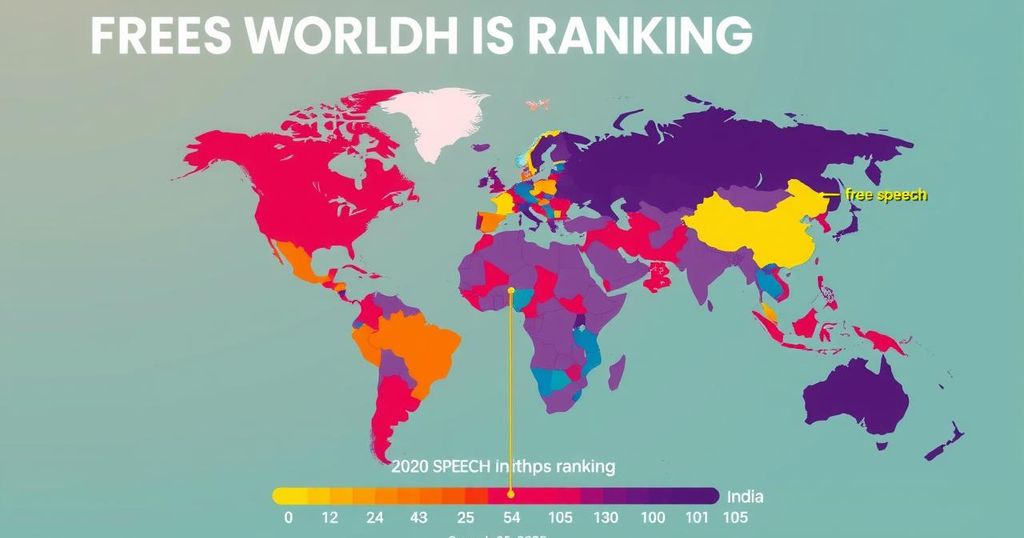India’s Position in Free Speech Index Highlights Contradictions in Support and Practice

India ranks 24th among 33 countries in the Future of Free Speech survey, showing strong public support for free speech but low tolerance for government criticism. The global trend since 2021 reveals declines in free speech support, particularly in democratic nations. Notably, India faces a disconnect between support and protection of free speech, indicating democratic backsliding.
A recent survey conducted by The Future of Free Speech, an independent think tank based in the United States, has ranked India 24th out of 33 countries regarding support for free speech. The report, entitled “Who in the World Supports Free Speech?”, notes that while abstract support for free speech remains robust, the actual commitment to protecting controversial speech is diminishing globally.
The survey was conducted in October 2024 and indicated that since 2021, more countries have experienced declines rather than improvements in free speech support, particularly in democratic nations such as the United States, Israel, and Japan. The top positions in the index were occupied by Scandinavian countries, with Norway scoring 87.9 and Denmark 87.0, while India achieved a score of 62.6, ranking between South Africa (66.9) and Lebanon (61.8).
Additionally, the findings regarding India highlighted that, although many Indians deem it essential to speak freely without government interference, support for critical discourse on government policies was notably below the global average. For instance, 37% of Indian respondents expressed that governments should be allowed to restrict criticisms of policy, marking the highest percentage of such sentiment among the countries surveyed. In comparison, only 5% of UK respondents and 3% of those in Denmark supported this view.
Typically, nations that endorse free speech enjoy greater practical freedom of expression. However, India presents a unique case where the actual protection of free speech is low in relation to public support, exemplifying a trend of democratic backsliding. “The substantial disconnects from the general pattern are represented by India, Hungary, and Venezuela,” the report states, emphasizing these nations’ previous high regard for political liberties, including expression freedom.
When surveyed about their experiences with political discourse, respondents from India and South Africa reported significant improvement, although external assessments suggest that the situation in India may have deteriorated. Jacob Mchangama, Executive Director of The Future of Free Speech, remarked, “Free speech is more than a legal right; it depends on a culture of open debate and tolerance for dissent.” He further cautioned that the findings illustrate a troubling decline in the willingness of many nations to defend controversial speech, even where strong legal frameworks exist.
In summary, the findings from The Future of Free Speech survey reveal that India ranks 24th out of 33 countries in support for free speech, indicating significant public backing yet alarming levels of government criticism suppression. The report highlights a global trend of declining support for controversial speech even in democratic nations. The observations underscore the essential relationship between cultural acceptance of free expression and its legal protection, pointing to troubling democratic backsliding in several countries, including India.
Original Source: www.thehindu.com








